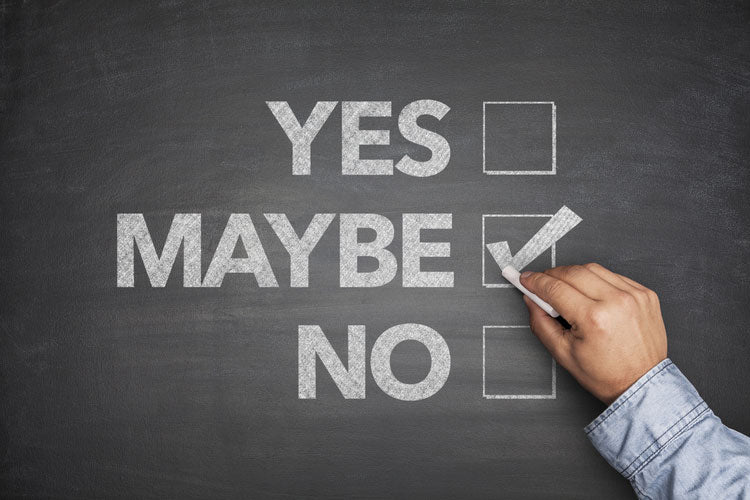
Seven Ways to Stop Over-Committing Yourself
If you know me, you know that one of my mantras is strategize your yesses. That’s because the stress that results from over-committing causes you to overeat, makes you miserable, and even ages you faster. I call it getting “fat, bitchy, and bald.”
If you want to be healthy, you need to stop saying yes to everything and everyone. However, I know from personal experience that this habit isn’t easy to break. So today, I’m offering up seven strategies that can help you start saying no.
Visualize what you’re giving up. Every time you say yes to a commitment, you’re saying no to something else—whether it’s relaxing with a book, playing with your kids, or doing your exercises. So before you say yes to an obligation, take a minute to visualize what you’re sacrificing. This can help you make smart choices.
Take off the super-hero costume. Busy people tend to wear over-commitment as a badge of honor. It becomes part of who they are—Wonder Women or Supermen who are capable of doing the impossible. If this sounds like you, realize that your own ego is the problem. It’s time to swallow your pride and realize that there are equally competent people who can take on some of your obligations—and no one will think less of you if they do.
Practice saying no. If you’ve said yes to every commitment for decades, you may feel very uncomfortable saying no. But the more you do it, the easier it will get! So each week, make a point of saying no to one obligation. Also, rehearse positive ways to decline—for instance, “Oh, I wish I could. But I have so much on my plate right now that I can’t.”
Plan realistically. A friend of mine lost hours of time on a hectic day last week trying to do a simple chore: making posters for her son’s soccer team. First, she discovered that she needed new marking pens, necessitating a trip to the store. On the way back from the store, she ran over a nail and got a flat tire. She changed the tire, dropped the flat off at a gas station, and got home—only to discover that her new puppy had peed on her poster board. By then, she was running late for another obligation and her day was in ruins.
What’s the moral? Before saying yes to a commitment, make sure you have plenty of buffer time in your schedule to allow for complications. Otherwise, you’ll wind up over-booked and overstressed.
Tune in to your emotions. If someone asks you to take on a commitment, stop and evaluate your feelings. Do you feel annoyed, put-upon, resentful, or depressed at the idea of saying yes? Then that’s a good sign that you should consider saying no.
Choose quality over quantity. Make a list of all of your commitments. Now, ask yourself: Which of these are the most important to me? Which make the most difference in people’s lives? Which really, truly matter? Number your commitments from most to least important, and get rid of those at the bottom of the list.
Develop a “swap” system. If you have as many commitments as you can handle, resolve to drop one commitment for each new one you take on. This will go a long way in helping you decide whether a new commitment is worth it or not.
—
During this month—my month of Doing You—I want you to put all of these strategies into action. Every single day, strategize your yesses. Stop running yourself ragged, and learn to treasure yourself and make time for your own needs. When you do this, you’ll look and feel infinitely better—and you’ll say goodbye to “fat, bitchy, and bald.”
Keep Thinking Big & Living Bold!








